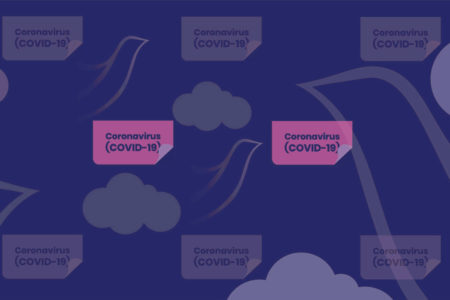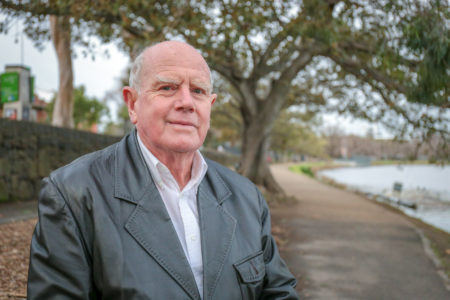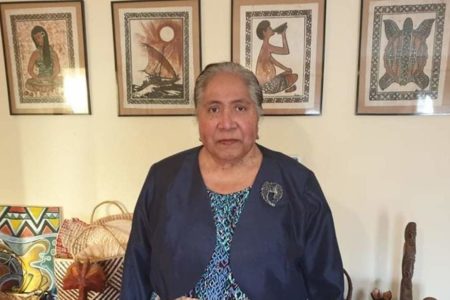By Andrew Humphries
For Uniting Church members in Tasmania and Melbourne, it’s not just the expanse of the Bass Strait that has separated them in recent months.
The COVID-19 pandemic which swept the country in March has had a vastly different impact on Uniting Church congregations and services in the Apple Isle and Victorian capital.
As Melbourne congregation members reeled in July from the harshest restrictions ever put in place by a government, in a bid to bring a second wave of the pandemic under control, Tasmanian worshippers were enjoying relative freedom.
In Tasmania, with only two new cases in three months until the end of August, congregations were able to carefully return to normal.
The Uniting Church’s Presbytery Minister for Mission Development, Rev Hoon You, has been allowed to travel since early July, allowing him to conduct mission studies and keep in touch with nearly 50 places of worship across Tasmania.
Rev You moved to Tasmania in July last year with his family and started in his mission development role the following month.
“I’m still relatively new to Tasmania, but I’ve been travelling around Tasmania with my family since I started in the role,” Hoon says.
“I have been able to travel all around the island with my family, attending worship services in various congregations every weekend.
“King Island is the only place I haven’t visited, and that’s because of the border restriction still in place after many COVID-19 restrictions were lifted.
“We have obviously enjoyed a lot more freedom, compared to the situation in Melbourne.”
It’s been a far different story nearly 500km away, in Melbourne’s inner-city suburb of Carlton, where Church of All Nations congregation members could only look on with envy at their southern counterparts, as COVID-19 restrictions bit deeply.
The Church of All Nations, or CAN as it is affectionately known, has a long and proud history of providing faith and assistance to some of Carlton’s most vulnerable residents, something that was tested during the dark days of the pandemic.
“There has been a parish mission for over 150 years in the Carlton area,” CAN council chair Sue Clarkson says.
“Our role as a parish mission means that we do very locally focused mission work and the congregation has done outreach into the local community almost since its inception.”
In fact, according to CAN’s executive officer for community support, Cheryl Lawrie, serving the local community forms the cornerstone of the church’s work.
But COVID-19 restrictions in place since March, with only a short return in June to any sense of normality, have meant major and dramatic changes to the way CAN supports the local community.
The restriction on the number of people who can gather together has been an obvious brake on the sort of work CAN has always done.
“Before COVID-19, we were working strongly with the community and with vulnerable people within that community,” Cheryl says.
“We had programs, including community meals, emergency relief, a drop-in centre and a family learning program. The family learning program was essentially a homework club which extended to include the parents of the children involved.
“We also worked closely with the mothers on health, education and welfare and that extended into an African women’s program.”
For Tasmanian worshippers, the introduction of restrictions in March meant some dramatic changes, including an end to church services.
“Immediately, our presbytery team made resources available through our website and on Facebook, providing alternative options for Sunday morning worship without actually gathering together,” Hoon says.
“Some congregations also started using telephone and email communication as a means of keeping everyone connected, including with the wider community. In some ways it was a challenge, but I was also amazed at the capability of the many people who made the transition quickly to a different way of doing things.
“Different congregations had different methods, but they were all finding ways to ensure that that connection happened.”
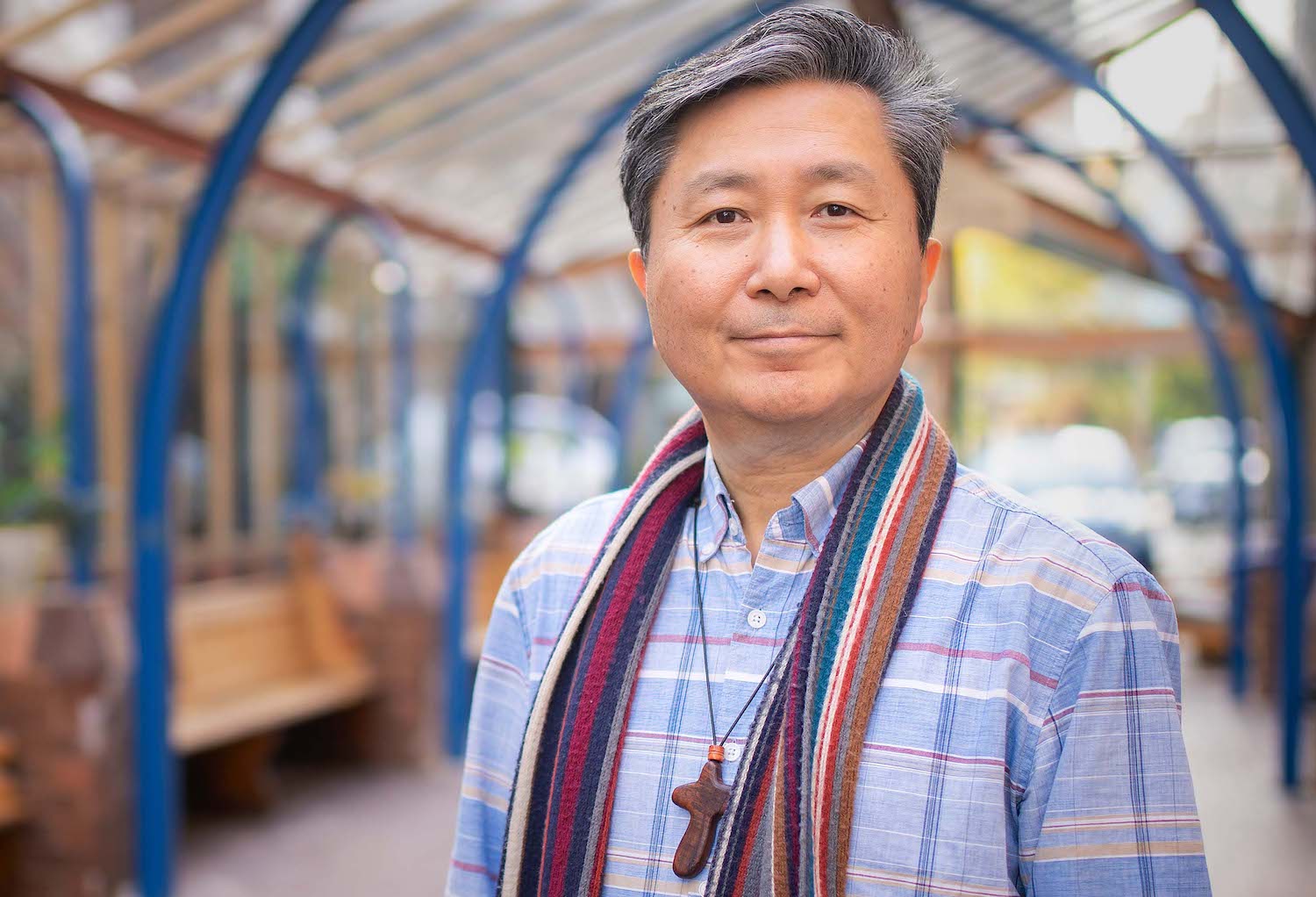
Rev Hoon You says “those members who rejoined physical services are really enjoying seeing each other’s faces again.”
In Melbourne, Sue and Cheryl quickly realised the pandemic’s emergence was going to present a major challenge, particularly for some of the congregation’s more vulnerable members.
“We have many congregation members who fall into that ‘vulnerable’ category and when COVID-19 came we had to shut down fairly quickly in terms of face to face worship,” Cheryl says.
“It’s been difficult for everyone and we have a number of congregation members who live alone, but I’ve been impressed with how everyone has kept active and just got on with things.
“It’s all about trying to find different ways for people to connect and we have continued with a presence online and we send material out each week.
“We’ve done things like Zoom meetings and what’s been fantastic about that is we have had former congregation members join us from places like Timor Leste, Japan and Rwanda. We also set up a pastoral care team, which meant that everyone in the congregation gets a call every couple of weeks.”
Unlike their Uniting Church counterparts in Melbourne, Tasmanian congregation members were allowed to return gradually to physical church services in July, with some restriction on numbers in place.
“Many of our churches were able to restart services, while implementing social distancing measures according to a Synod check list,” Hoon says.
“Our numbers have been affected, but we are gradually getting back to the pre-COVID-19 days, albeit with some differences.”
Hoon says it is now a different type of service in some communities.
“For example, the Clarence congregation decided they would record the music and hymns the day before each service and then play it, instead of singing in public during the actual service,” he says.
What Hoon quickly found when services resumed was the boost it gave to congregation members.
“I can tell you that those members who rejoined physical services are really enjoying seeing each other’s faces again,” he says.
In Melbourne, though, CAN’s congregation has been unable to worship together, meaning other arrangements have needed to be put into place.
“We decided early on that we couldn’t offer live streaming services, mainly because we only have an interim minister at the moment, but we do have a network arrangement with other city churches,” Sue says.
“We’ve been directing our members to some of those churches which are offering streaming services.”
In Tasmania, Hoon says the need to pivot quickly and adjust ways in which the church served the community became increasingly important as the pandemic began to change everyday life.
At Hobart Wesley’s Nobucks café, for example, simple changes meant it could continue to provide a vital service to some of the city’s most vulnerable people.
“At Nobucks café, which is run by the congregation and Uniting Tasmania, pandemic restrictions meant they had to change the way they provided food to the city’s street people,” Hoon says.
“Restrictions meant they couldn’t serve food as they normally would, but they were able to make it as a wrap, which allowed people to pick it up, so that service was able to continue, even though it was in a different way.”
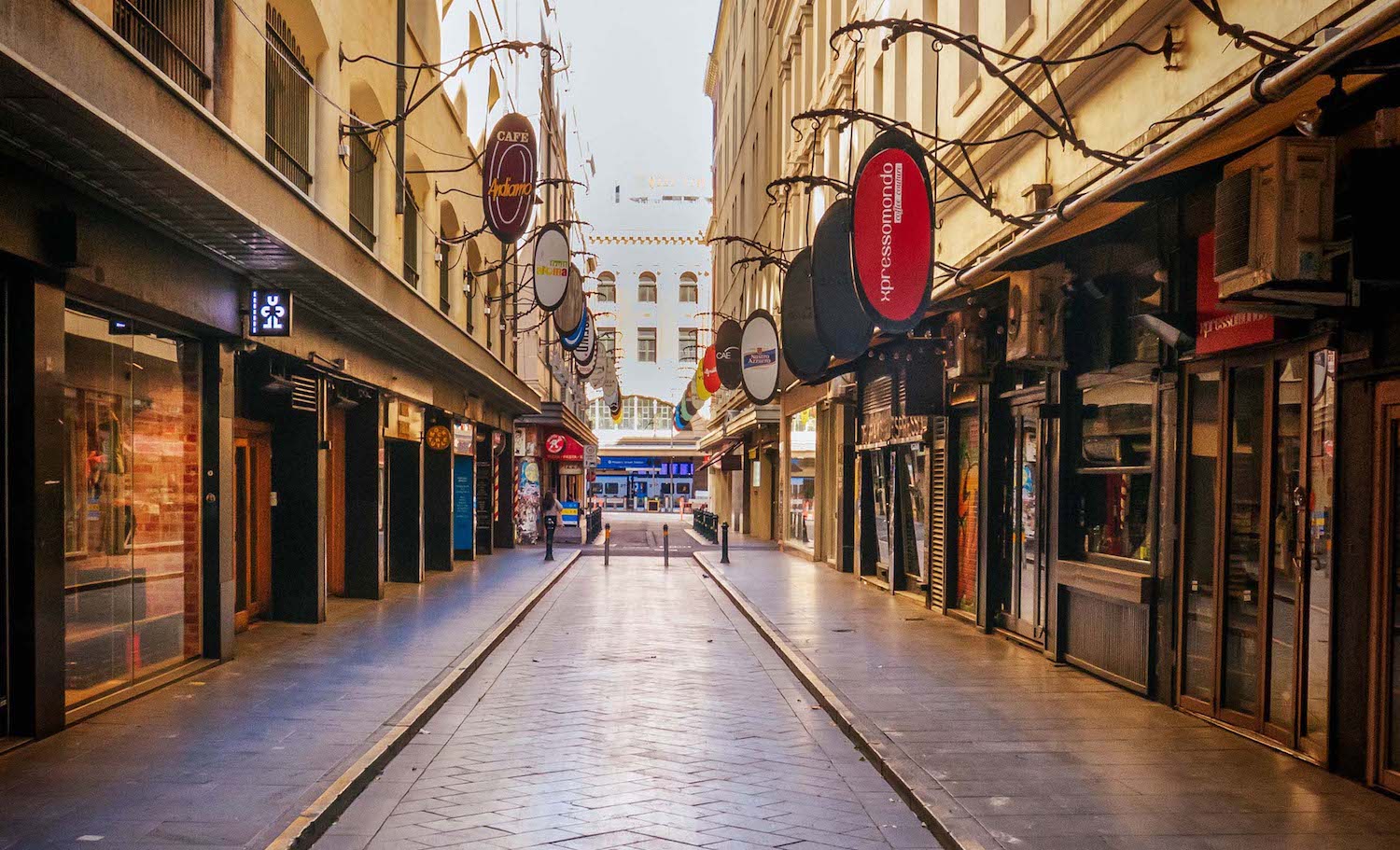
Stage Four restrictions have forced Melburnians to remain indoors.
At CAN’s Carlton headquarters, Cheryl says they had never been busier as they continued to serve the community as best they could during the various stages of restrictions and then the full lockdown from early August.
“We’ve really worked full-on since March, when the pandemic first hit, and even more so when the lockdown came in,” she says.
“We have had a doubling of people who require our services and that’s become more complex because of the number of COVID-19 cases in the housing towers around us and the fear around that.
“So we had a dramatic increase in people needing support, as well as people who can’t access support by other means.”
Cheryl admits the situation since March required a major readjustment to the way CAN operates as more people sought its assistance.
At times, the pandemic’s impacts have stretched CAN to its very limits.
“We hand out vouchers one morning each week and we distributed about $2000 in vouchers in a three-week period,” she says.
“There was one day in which we handed out $750 in vouchers, yet normally we would hand out about $2000 worth of them a year.”
On the Apple Isle, Hoon believes some positives have emerged from the experience of living with COVID-19.
“I think we have seen a strengthening of relationships among our church communities,” he says.
“We’ve been able to focus on who we are as a church, and the faith community, and acknowledge that we’re not necessarily limited by a physical building.
“Our members have been resilient and I’ve been thankful to see that.”
While some might label the situation a crisis, Hoon prefers a more positive focus on what has happened since March.
“In Korean language, there are two aspects to the word ‘crisis’, ‘위기(危機)’; ‘위’ means danger but ‘기’ means opportunity,” he says.
“(The pandemic) has never been a testing of my faith because I still believe God is guiding us.
“I have witnessed in Tasmania how God’s people are faithfully trying their best even in this crisis and slowly discovering some opportunities. My attitude was one of how can we best deal with this.”
In Melbourne, though, reintroduced stage 3 restrictions in July, quickly followed by the imposition of the much harsher lockdown laws, presented a different story.
“Normally, every other day of the year we want our community to gather together and have community meals because we know that that will create a better community,” Cheryl says.
“Because of the pandemic, though, we know that what will create a good community and a healthy one doesn’t involve a great deal of inclusion (any more).
“We know that social inclusion is about meeting face to face, and now we can’t do that and that is so contrary to any sense of what normally provides us with community wellbeing.”
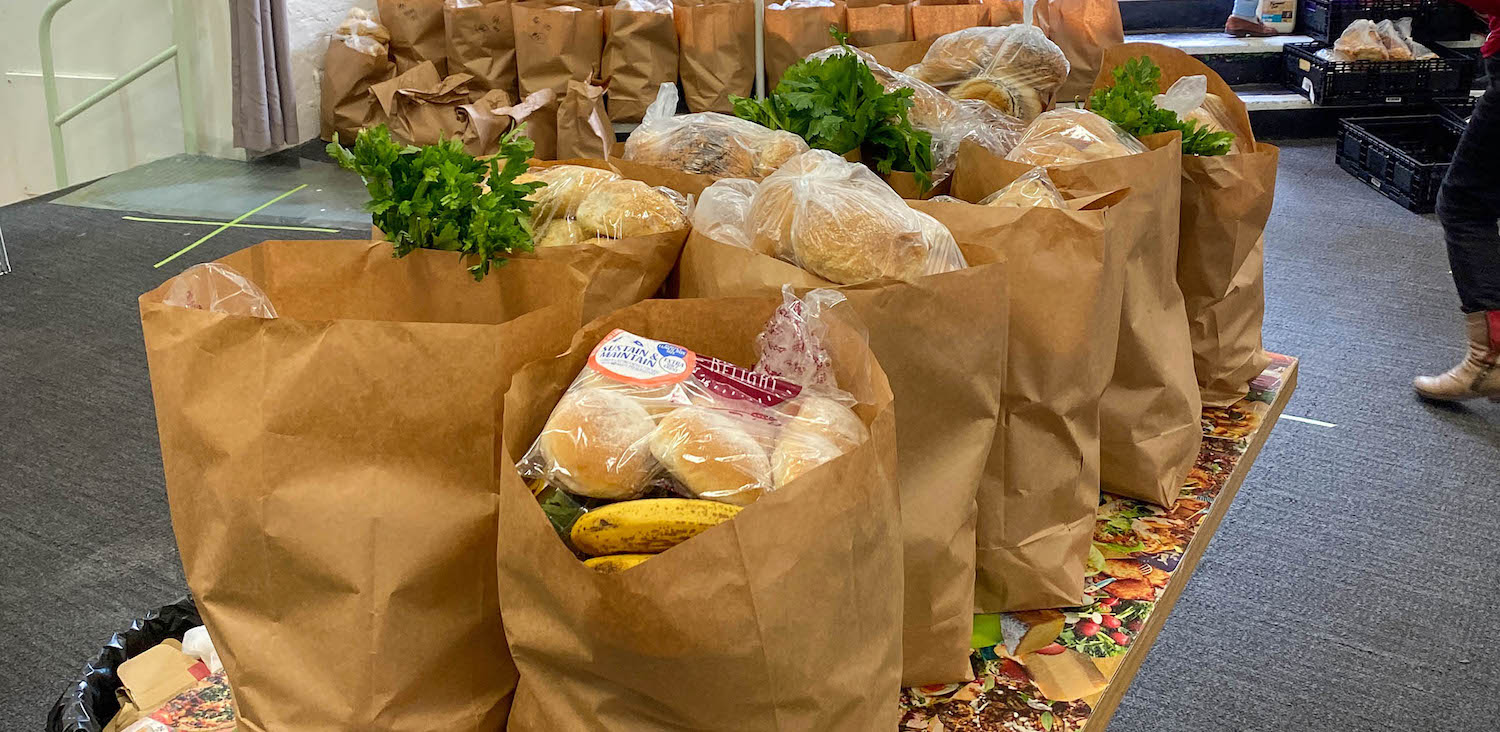
The Australian Muslim Social Services Agency and restaurant Lentil as Anything helped CAN get much-needed food and resources to vulnerable residents.
Despite what has been an incredibly difficult year, Cheryl said CAN volunteers were determined to focus on what positives might have emerged.
“I think this is the perfect time to evaluate what we have been doing,” she says. “We know we can’t return to whatever was normal before and it’s simply a different world now.
“We’re treating that as a positive, in the sense that there are some things we can let go of now.
“Now we have the opportunity to say we can’t do something the way we used to, but here is another way to do it.”
Through it all, Cheryl says she has seen the very best qualities emerge in people.
“We’ve seen people step into things they probably thought previously they wouldn’t be able to do and we’ve been able to watch and nurture some of that,” she says.
“I’m just in awe of our staff because they have been brilliant, flexible, agile and hilarious and there has been a really lovely sense of a shared vision. I genuinely believe that if you turn up and look for the best in people, then something good and beyond our expectations can emerge and I think that’s what has happened here.
“There is a real dogged determination to make it work.”
Fare share
It’s the sense of community support and generosity from various agencies that have reaffirmed Cheryl Lawrie’s belief in the fundamental decency of human beings.
The Church of All Nations’ interim executive officer for community support points to the outstanding work done by two organisations as proof of how the dark days of the COVID-19 pandemic can bring out the best in people.
The Australian Muslim Social Services Agency and vegetarian restaurant Lentil as Anything stepped in to help CAN get much-needed food and resources to many of the area’s most vulnerable residents.
“We were able to pick up, in collaboration with AMSSA, some huge food provisions to get to people in the community,” Cheryl says. “The other great thing is our collaboration with Lentil as Anything.
“They are serving meals from here three days a week on a pay-what-you-can basis and this has been an amazing way for people to get hot food.”
With a communal dining arrangement at CAN no longer feasible during the pandemic, Cheryl says some simple changes mean people are still able to enjoy access to meals.
“It’s all done in takeaway containers and we have a contact-free delivery system, with a marquee set up at the back of the church where people can pick the meals up,” she says. “We also have a group of volunteers who deliver meals for us.
“That’s been great and it’s lovely to feel like we are able to offer something that is nourishing and warm and ethical.”
Continually checking on the wellbeing of residents is also part of CAN’s ongoing support work.
“We’ve got one staff member who does wellbeing checks for us and she calls people to see how they are going,” Cheryl says.
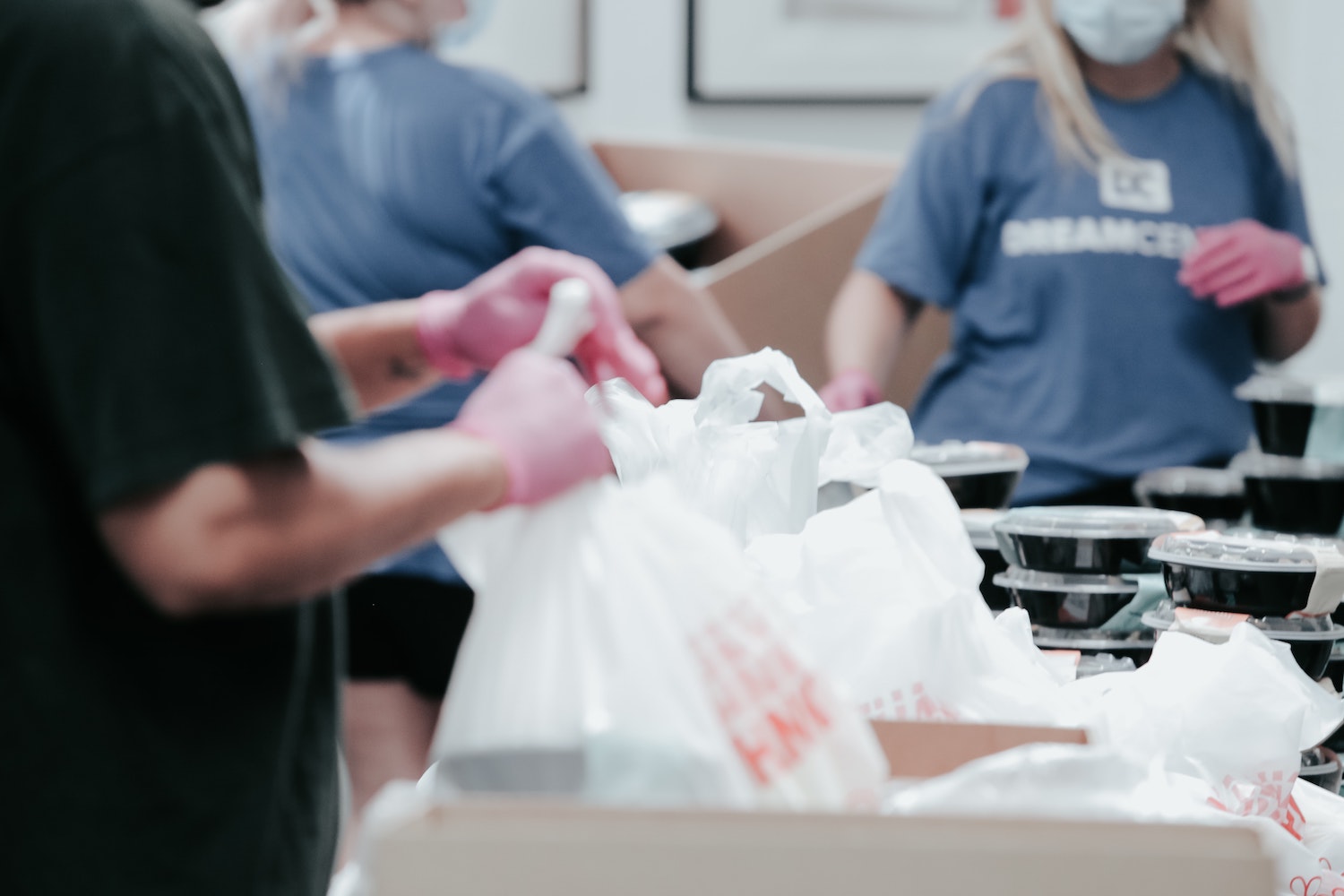
Cheryl Lawrie says “this church is known in the community as being there for the community, and it’s hard not to overstate the importance of that.”
“She spoke to someone on one occasion who said they hadn’t spoken to another person since Melbourne went into stage 3 restrictions in March.
“So there is that real sense of social isolation among residents and that real fear of what might happen when they walk out of their front door.
“These are people who may have English as a fourth or fifth language, so they may not understand exactly what they are allowed to do as part of the restrictions.”
Cheryl remains determined, though, to focus on the positives as much as possible during such an anxious time.
“What’s been fantastic is the collaboration between the core group of volunteers and the residents of the towers,” she says.
“Some of those volunteers are also clients and they are putting their heart and soul into making this work.
“This church is known in the community as being there for the community, and it’s hard not to overstate the importance of that.”
How you can help
The work of CAN’s community support is largely funded by the congregation and people within the community.
There is some local council support for food relief, which they are hugely grateful for, but most of the funding for emergency relief, particularly at the moment, comes from members of the community who recognise the importance of the service.
At the moment all of their donations are going directly to food relief for the local community, unless earmarked for other projects.
To make a donation to allow CAN to continue its much-needed work, click here.



